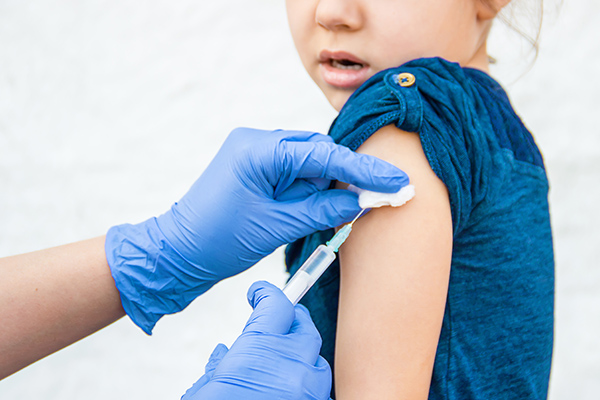In light of the recent emergence of a few cases of measles in Pinellas County, which had not reported a case in 20 years, USF Health doctors reflect on the importance of vaccination as a safe way to prevent measles and other contagious diseases. They also comment on misinformation that continues to be spread by a small, but vocal, group of parents advocating against immunizations.
Measles can be a severe disease, particularly in young children and people with compromised immune systems – leading to complications from permanent hearing loss to potentially deadly pneumonia. The virus is easily spread through the air when an infected person coughs or sneezes.
Jose Montero, MD, a professor of internal medicine in the USF Health Morsani College of Medicine’s Division of Infectious Diseases, says the remarkable success of the measles-mumps-rubella (MMR) vaccine introduced in 1971 may lead to some complacency about the need for routine vaccinations.
The Centers for Disease Control and Prevention reports that one dose of the MMR vaccine, administered at age 1 to 15 months, is 93 percent effective in safely preventing measles. With the addition of a second dose, given at age 4 through 6, effectiveness reaches 97 percent.
“We’ve now had a couple of generations of people who have not ever seen measles in their lifetime, so they don’t think of it as a threat and may question the need for vaccination,” Dr. Montero said.
Most small outbreaks in the U.S. have been brought back from people living here who travel to other countries where measles is more prominent, Dr. Montero said. But even slight upticks in cases of a highly contagious disease like measles can be cause for concern if it chips away at “herd immunity,” he added. Herd immunity is the ability of a well-vaccinated public to protect a much smaller population unable to be safely vaccinated either because they are too young (under age 1) or immune compromised.
To protect all, Dr. Montero said, “we need upwards of 95 percent of a community immune to measles because of its high level of transmission.”
A 1997 study reported in a British journal linking the MMR vaccine and autism – and since shown to be fraudulent by independent experts including the National Academy of Medicine (formerly the Institute of Medicine) – was spread in the U.S. by celebrities like Jenny McCarthy.
Social media provides an outlet for the quicker spread of such claims that are not based on scientific evidence, said Jill Roberts, PhD, assistant professor of global health in the USF College of Public Health. “Whenever I see misinformation about vaccinations on social media, I combat it and give good sources.”
All public health, medical, nursing and government agencies in the U.S. and internationally recommend vaccination, Roberts said. “There’s a reason for that. It’s best practice, it’s effective, it’s safe, and it’s the best way to protect your kids from preventable diseases.”
Vaccines almost always work with very few side effects, USF Health experts say — but only if parents ensure their children get them.
For more information, visit the CDC website at https://www.cdc.gov/vaccines/parents/diseases/child/measles.html
-Video by Torie Doll, USF Health Communications and Marketing

